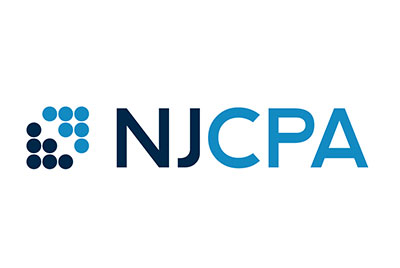New Jersey Society of CPAs Clarifies
One Big Beautiful Bill’s Hourly Worker Tax Deductions
–
August 13, 2025

What “No Tax on Tips and Overtime” Really Means
The New Jersey Society of CPAs (NJCPA) reminds New Jersey taxpayers that new tax deductions exist for
hourly workers in the One Big Beautiful Bill (OBBB) signed into law by the
Trump Administration on July 4, 2025.
Workers who receive tips can deduct up to
$25,000 in qualified tips, whether they are received via cash, credit cards or
digital payment platforms, from gross income starting in tax year 2025. Aimed
at assisting lower- and middle-income taxpayers, the tax deduction is available
for single filers who earn less than $150,000 in modified adjusted gross income
and joint filers who earn less than $300,000.
Workers are also allowed to deduct their
“qualified overtime” compensation, or what they make in an extra hour of work,
up to $12,500 for single workers and $25,000 for joint filers. The portion that
can be deducted is the “premium” portion of their overtime compensation, which
is the amount paid above the hourly rate. For example, if an employee earns $20
per hour and their overtime rate is $30 per hour (time and a half), the
“qualified overtime” would be the $10 premium per hour, not the full $30.
The IRS said it would not make any changes
to withholdingwithholding tables tables or information returns,
including Form W-2, 1099, 941 and others, for tax year 2025 to provide enough
time to adapt to the provisions but it will have updated forms for the 2026 tax
year. By Oct. 2, 2025, the IRS will publish a list of occupations that
“customarily and regularly” receive tips.
It is important to note that these
deductions apply at the federal level only.
“CPAs are a great resource for these and
other tax-related issues. Our members have a wealth of information on both
federal and state tax topics and routinely share their knowledge with
businesses and the community,” said Aiysha (AJ) Johnson, MA, IOM, CEO and executive director at the
NJCPA.
Other tax provisions of the OBBBA can be found here. Taxpayers seeking assistance can access
a searchable list of CPA firms at njcpa.org/findacpa.
The information in this guide has been gathered from many sources, including the Internal Revenue Service, the Social Security Administration, state agencies, professional organizations and members of the NJCPA. The majority of state agencies offer online and prerecorded services. It’s best to check online or call before you visit.
Material contained within this guide should be augmented by, and used in accordance with, a certified public accountant's professional judgment. Your CPA can properly apply the tax laws and regulations to the facts and circumstances of your particular situation. For help with locating a CPA, visit findacpa.org.
The New Jersey Society of Certified Public Accountants is not responsible for any claims arising as a result of this information or its usage.
This guide was updated in September 2025. Future users of this material are cautioned that some portions, particularly tax-related information, may become outdated.